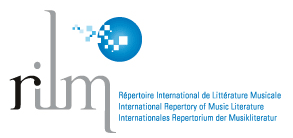La irrupción del Octeto Buenos Aires en la historia del tango. Recepción social en el marco del cambio de la estructura de poder en Argentina en 1955.
Resumen
Este trabajo se propone indagar el impacto producido por la música compuesta por Astor Piazzolla para el Octeto Buenos Aires (1955-1958) en la historia del tango en Argentina y la recepción social que se le brindó en ese momento, teniendo en cuenta que el golpe de estado de 1955 modificó sustancialmente el campo cultural del país. Explica que el fracaso del Octeto y la animadversión que provocó no se debieron tanto al tipo de música que interpretaba como al particular estado en que se encontraba el género en ese momento, al cambio de políticas culturales posterior a la caída del peronismo, a la mudanza del humor social producida en los últimos años del régimen y a la conformación de clases en la sociedad argentina de esos años, en particular el surgimiento de una conciencia de identidad de clase media como opuesta al peronismo.
Descargas
Descargas
Publicado
Número
Sección
Licencia
Derechos de autor 2018 Omar García Brunelli

Esta obra está bajo una licencia internacional Creative Commons Atribución-NoComercial 4.0.
Atribución/Reconocimiento-NoComercial 4.0 Internacional
https://creativecommons.org/licenses/by-nc/4.0/
Usted es libre de:
- Compartir — copiar y redistribuir el material en cualquier medio o formato.
- Adaptar — remezclar, transformar y construir a partir del material.
- La licenciante no puede revocar estas libertades en tanto usted siga los términos de la licencia
Bajo los siguientes términos:
- Atribución — Usted debe dar crédito de manera adecuada, brindar un enlace a la licencia, e indicar si se han realizado cambios. Puede hacerlo en cualquier forma razonable, pero no de forma tal que sugiera que usted o su uso tienen el apoyo de la licenciante.
- No Comercial — Usted no puede hacer uso del material con propósitos comerciales.
- No hay restricciones adicionales — No puede aplicar términos legales ni medidas tecnológicas que restrinjan legalmente a otras a hacer cualquier uso permitido por la licencia.
Avisos:
No tiene que cumplir con la licencia para elementos del material en el dominio público o cuando su uso esté permitido por una excepción o limitación aplicable.
No se dan garantías. La licencia podría no darle todos los permisos que necesita para el uso que tenga previsto. Por ejemplo, otros derechos como publicidad, privacidad, o derechos morales pueden limitar la forma en que utilice el material.






